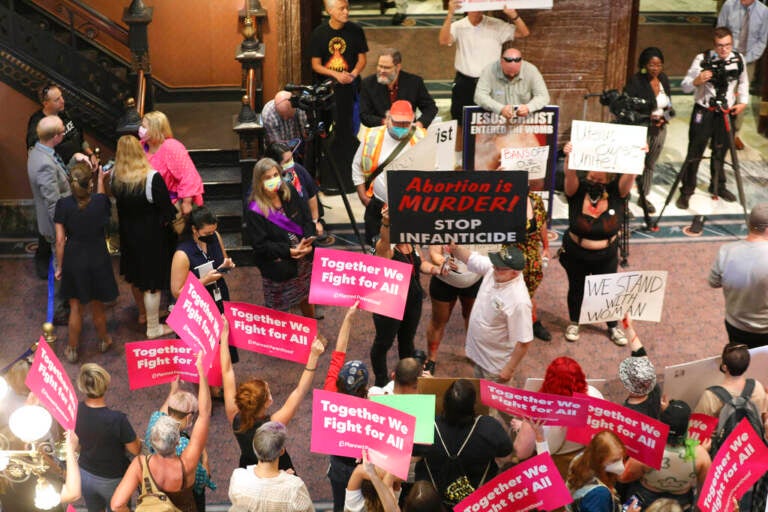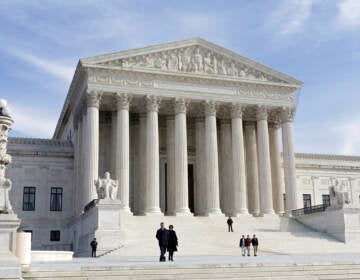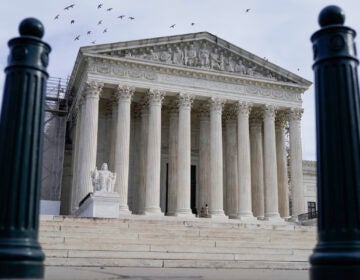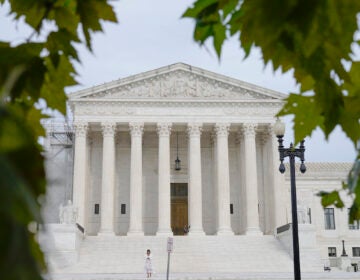The End of Roe: Protests, Celebration, and the Impact of Being Denied an Abortion
In the immediate aftermath of overturning Roe v. Wade, a look at the abortion debate, access to reproductive healthcare and the challenges for pregnant people turned away.
Listen 49:30
Protesters who support more abortion restrictions and protestors who upset at the recent U.S. Supreme Court ruling removing protections for abortions demonstrate in the lobby of the South Carolina Statehouse on Tuesday, June 28, 2022, in Columbia South Carolina. (AP Photo/Jeffrey Collins)
The Supreme Court ruling to overturn Roe v. Wade last week had immediate reactions and consequences. It was both praised and criticized, led to lawsuits from organizations like Planned Parenthood and the ACLU, and the enforcement of so-called “trigger laws” in several states outlawing most abortions at any stage of pregnancy. Abortion-rights supporters said the decision threatens the lives of pregnant people everywhere and returns women to second-class citizen status, while abortion-rights opponents call overturning Roe v. Wade a victory for all women and children. But a longitudinal study on the economic and psychological impact on women denied abortions showed that most people do not regret their decision to terminate a pregnancy.
Diana Greene Foster (@dianagfoster) joins us to discuss her research and interviews with over 1,000 women who either had or were denied abortions, detailed in her book, Turnaway Study: Ten Years, a Thousand Women, and the Consequences of Having—or Being Denied—an Abortion. She is a professor and Director of Research at Advancing New Standards in Reproductive Health at the University of California San Francisco (@ANSIRH).
Dr. Lisa Perriera, explains why providing abortion procedures and reproductive healthcare is so important and her concerns now that Roe has been overturned. She is Chief Medical Director of The Women’s Centers who provides abortion care at Philadelphia Women’s Centers and Cherry Hill Women’s Centers. (@womenscenters)
Maria Gallagher joins us to discuss the decision, how she sees the victory of the Dobbs v. Jackson decision and what comes next for anti-abortion rights activists across the country. She is the Legislative Director at the Pennsylvania Pro-Life Federation (@PAProLifeFed)
We Recommend
POLITICO Six Predictions About the End of Roe, Based on Research “What happens when someone is pregnant but feels they don’t have the money, physical strength and wellbeing, or emotional and social resources to raise a child? And how does the trajectory of their lives change when they are able to get an abortion — or when they can’t?”
The New York Times I Prayed and Protested to End Roe. What Comes Next? “I have always believed it would be overturned, as other unjust decisions by the court were, although I thought it would take longer. I rejoice that it did not. But of course it will take longer for abortion to become unthinkable, which is the real goal of the pro-life movement.”

Subscribe for more Radio Times
WHYY is your source for fact-based, in-depth journalism and information. As a nonprofit organization, we rely on financial support from readers like you. Please give today.





